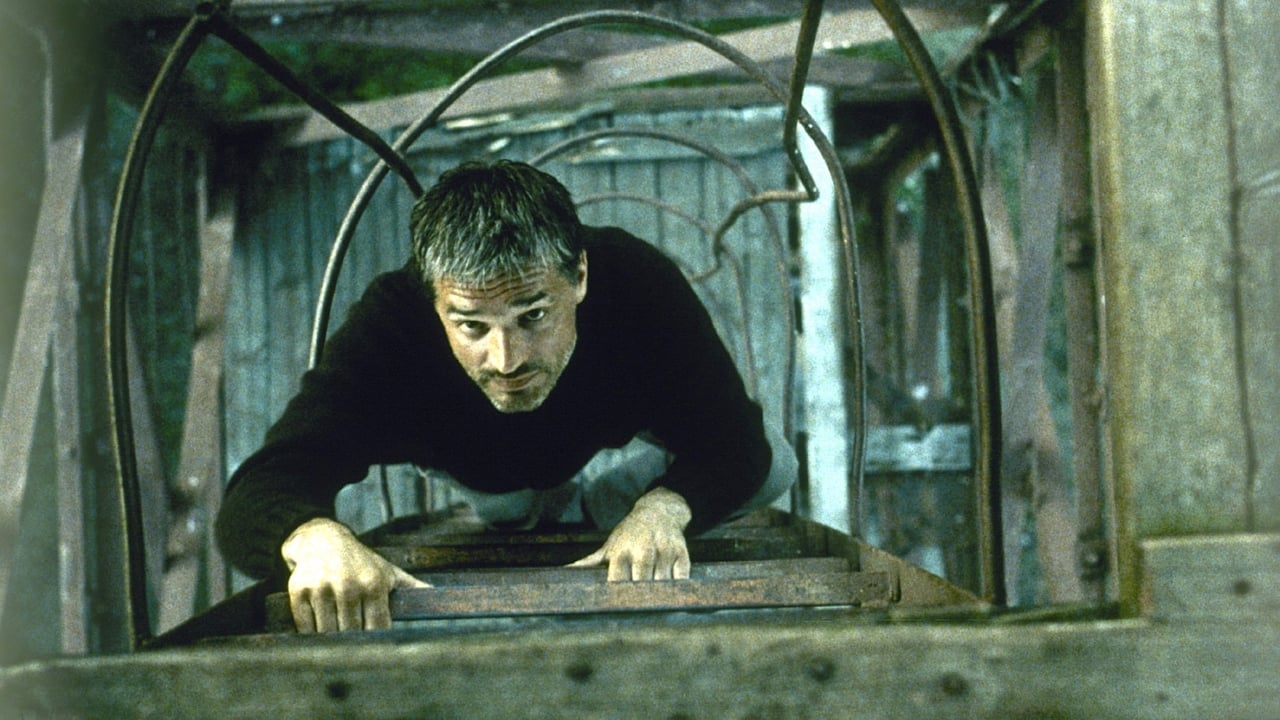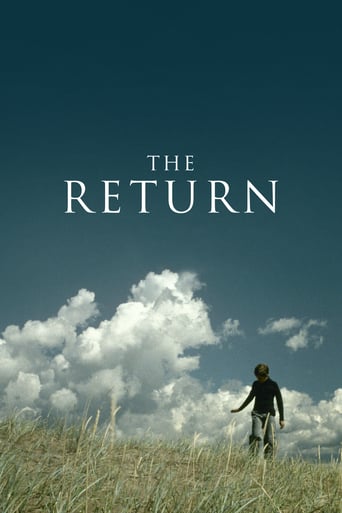

Overrated
... View MoreIt is a performances centric movie
... View MoreIt's easily one of the freshest, sharpest and most enjoyable films of this year.
... View MoreThis is a dark and sometimes deeply uncomfortable drama
... View MoreThis is an amazing film from Russia. It touched me deeply and only a Russian can make such a poignant tale about relationships that everyone regardless of their background will relate to. Story here is about two brothers who are suddenly confronted by their father who had been absent in their lives since their birth. He takes them on an excursion into the wilderness and tries to teach them the ways of life the way he sees right. I was horrified to learn that the boy who played the elder son died in real life soon after the film was done with production. It makes this film more poignant. Please see this film if you get an opportunity.
... View MoreThe two sons handle this situation very differently after not seeing their father for 12 years. . The older son, Andrei is happy to have his father back and wants to do everything to please him while the younger son, Ivan, has a resentment towards his father. The first half hour of the film, I couldn't say I particularly liked the movie. Ivan was starting to really annoy me with all his sass and I didn't see much of a point to the movie. As I watched more of it, I started liking it more. The complexity of the relationships started seeming more realistic in this kind of a situation. In the beginning, I hated the way the father treated his kids, but in the end, I realized why he had been doing what he was doing, he wanted to teach his sons what he couldn't in the past 12 years. And eventually the sons realized this and it became a much clearer picture. Once I finished this movie, I actually enjoyed it very much. I went from annoyed to guilty and sad, and the characters made you feel like you were there.
... View MoreI truly can't recall seeing a more terrible movie than this one. It blows my mind that anyone would give this garbage a good rating. Literally NOTHING happens throughout the whole flick except one minor incident towards the end that I really couldn't care any less about.We see a hard-ass dad with two terribly behaved kids, and that sums up the entire plot right there. I'm not sure what else to say except that if you enjoy watching a couple brats and a dead-beat dad interact then this boring cure for insomnia will be right up your alley! There was no suspense, certainly nothing "thrilling", and not a single positive thing I can think of to say about it. Awful movie.
... View MoreWhen I returned the DVD (yes, RETURNED THE DVD -- a whole 'nother story), I told the inquiring clerk that I had, indeed, enjoyed the movie. That, in fact, I couldn't think of anything wrong with it.Which maybe didn't sound quite like the ringing endorsement I meant it to be. "The Return" is, at once, not complicated and emotionally complex. Powerful without flexing. You can fit the plot into the palm of your hand, but filling in the spaces would take longer than watching the thing. So I've just been telling anyone who'll listen to see it. And if that ain't a ringing endorsement... The two young actors steering the ship - Vladimir Garin and Ivan Dobronravov - are great. Made me think of Keisha Castle-Hughes' go in "Whale Rider," which went out to the world the following year, I think. These young actors were believable, and so clear in their motivations without ever seeming unnatural. And they were beautiful, from their zits to their table manners. I loved watching them.(And I hated reading that Garin drowned just after filming when he leapt from the same tower the boys do in the first scene of the film. A weird, weird tragedy, just hauntingly absurd.)And then there's the film's use of nature, who is so present - so foreboding and lovely - that she would deserve subtitles if the look of her didn't speak for itself. I don't know that I've seen a film capture the natural world quite so effectively, so quietly and profoundly. Never was there a trumpet blast to announce: This is beautiful! But never did a flock of birds or some shifting willows on a screen captivate me so, never did a placid body of water weigh so much. Don't know how many of my peeps I can convince to watch a darn-near perfect, subtitled Russian flick, but I'm trying to tell them.
... View More